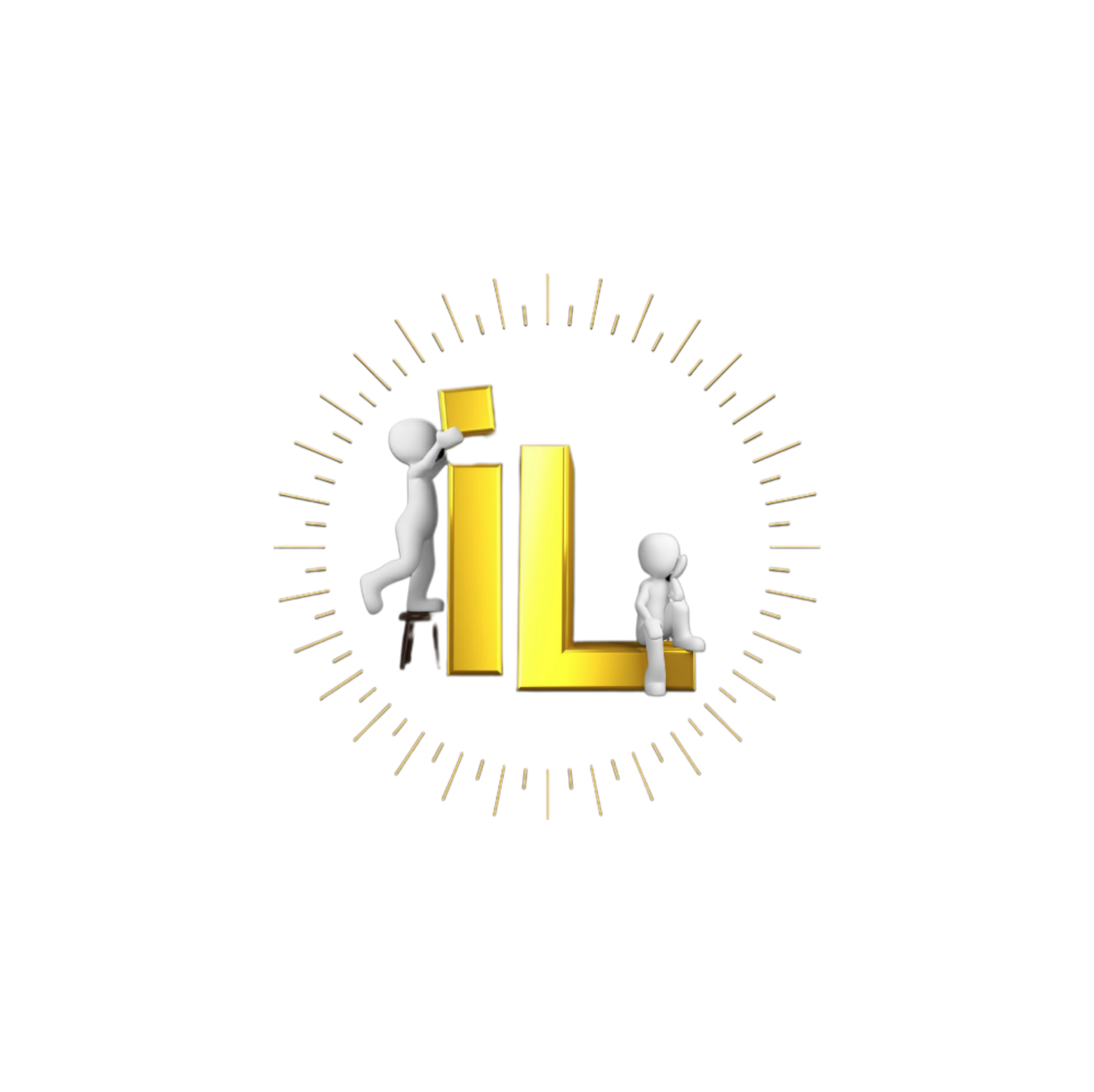What are the most critical aspects of pregnancy and childbirth that expectant mothers should know? Knowing about these topics is key for a healthy outcome for both mom and baby. The first birth usually lasts between 12 to 24 hours. Later births are shorter, lasting about 8 to 10 hours.
Maternal health, prenatal care, and labor and delivery are very important. These aspects are crucial for a good experience.
Expectant mothers need to know about prenatal care, labor and delivery, and postpartum recovery. These topics help navigate the challenges and joys of pregnancy and childbirth. Pregnancy and childbirth are unique experiences that need preparation and knowledge.
Understanding labor and delivery is key for a positive experience. Prenatal care is vital for both mother and baby’s health. Labor and delivery can be tough, but being ready can help a lot.
Postpartum recovery is a big part of the journey. A care team, including doctors and nurses, is important for a healthy outcome. Having a hospital plan from 37 weeks on is recommended.
Patients should call their doctor for any concerns. This includes decreased fetal movement, leaking water, spotting or bleeding, or painful contractions.

Key Takeaways
- Understanding the stages of labor and delivery is crucial for a positive experience.
- Prenatal care is essential for maternal health and a healthy outcome for both mother and baby.
- Labor and delivery can be a challenging and unpredictable process, but being prepared can make a significant difference.
- Postpartum recovery is an essential aspect of the pregnancy and childbirth journey.
- A care team, including an OBGYN doctor, nurse midwife, resident doctor, and a nurse, plays a vital role in ensuring a healthy outcome for both the birthing parent and the baby.
- Having a hospital plan in place for labor and birth is recommended from 37 weeks on.
- Patients should call their doctor if experiencing decreased fetal movement, leaking water, spotting or bleeding, or increasing painful contractions.
Understanding Early Pregnancy Signs and Changes
Early pregnancy signs and symptoms differ from woman to woman. Common ones include morning sickness, feeling tired, and sore breasts. The Mayo Clinic says these can start one to two months after getting pregnant. Knowing these changes is key for a healthy pregnancy and getting the right maternity services.
Some women face pregnancy complications like severe morning sickness or constant tiredness. These can really affect daily life. It’s important to follow pregnancy health tips and see a doctor if needed. Regular visits to healthcare providers can spot problems early and guide you on childbirth preparation.
Common early pregnancy symptoms include:
- Morning sickness
- Fatigue
- Breast tenderness
- Increased urination
- Mood swings
Remember, every woman’s pregnancy is different. Not all will have all these symptoms. If you’re worried or have questions, always talk to your healthcare provider.
Knowing about early pregnancy symptoms and managing them can help ensure a healthy pregnancy. Stay informed about pregnancy complications and seek medical help if you’re concerned. With the right maternity services and support, you can have a happy and healthy pregnancy.
| Symptom | Description |
|---|---|
| Morning Sickness | Nausea and vomiting, often in the morning |
| Fatigue | Feeling tired or exhausted |
| Breast Tenderness | Tender or sore breasts |
Essential Prenatal Care Guidelines
Prenatal care is key for a healthy pregnancy and childbirth. The American College of Obstetricians and Gynecologists says regular care lowers the risk of problems. Pregnancy nutrition is also vital, and eating well can prevent issues.
Some important prenatal care tips include:
- Regular check-ups with a healthcare provider
- Taking 400 to 800 micrograms of folic acid daily
- Eating a variety of healthy foods like fruits, vegetables, whole grains, and calcium
- Doing at least 2 hours and 30 minutes of moderate-intensity aerobic activity weekly
Women with high-risk pregnancy need to follow these tips closely. They should work with their healthcare provider for the best results. Natural childbirth is also an option, and prenatal care prepares the body for it.
By following these guidelines, women can ensure a healthy pregnancy and a good childbirth experience. It’s important to remember that prenatal care is not just for the mother. It’s also for the baby’s health and growth.
| Prenatal Care Schedule | Frequency |
|---|---|
| Weeks 4-28 | Approximately once a month |
| Weeks 28-36 | Twice a month |
| Week 36 to birth | Weekly |
Nutrition and Wellness During Pregnancy
Eating well is key for a healthy pregnancy. The Mayo Clinic says a pregnant woman needs about 300 extra calories a day. This helps both mom and baby stay healthy.
Focus on whole foods like fruits, veggies, whole grains, and lean proteins. The U.S. Public Health Service advises women to get 400 micrograms of folic acid daily. This can lower the risk of neural tube defects.
Maternal wellness comes from many nutrients. Here are some important ones:
- Calcium: 1,000 mg per day for individuals aged 19 to 50
- Iron: 27 mg per day
- Omega-3: 650 mg per day
Also, a good diet helps with breastfeeding. Drinking 8 to 12 cups of water a day is key to staying hydrated.
By focusing on good nutrition, expectant mothers can boost their health. This prepares them for a healthy pregnancy and breastfeeding journey.
| Nutrient | Recommended Daily Intake |
|---|---|
| Folic Acid | 600 micrograms |
| Calcium | 1,000 mg |
| Iron | 27 mg |
Preparing for Pregnancy and Childbirth
Expectant mothers need to think about childbirth preparation and maternity care. They should take childbirth classes to learn about labor and delivery. They also need to know about possible pregnancy complications.
Good childbirth preparation can lower the chance of pregnancy complications. It’s important to make a birth plan, pack a hospital bag, and pick a healthcare provider who knows maternity care.
- Understanding the importance of prenatal care and regular check-ups
- Learning about potential pregnancy complications and how to manage them
- Creating a birth plan that outlines preferences for labor and delivery
By being proactive in childbirth preparation and maternity care, expectant mothers can feel more ready for their baby’s arrival.

Understanding Labor and Delivery Stages
Labor and delivery are special times that need patience, support, and medical help. The Mayo Clinic says labor has three stages. The first stage goes from the start of labor to when the cervix is fully open. The second stage is from full dilation to when the baby is born. The third stage is from when the baby is born to when the placenta is delivered.
The first stage is split into two parts. The latent phase is from the start to 6 cm dilation. The active phase is from 6 cm to full dilation.
Here are some key points to know about labor and delivery:
- Average duration of labor for first-time births: 12 to 24 hours
- Average duration of the first stage of labor: up to 20 hours
- Duration of the early or latent phase of labor: can take hours to days
After labor and delivery, postpartum recovery is very important. This time also includes newborn care and breastfeeding tips for a healthy baby. Knowing these stages helps expectant mothers get ready for what’s coming.
It’s key to know and prepare for the different stages of labor and delivery, and the postpartum period. This ensures a smooth and healthy experience for both mom and baby.
| Stage of Labor | Duration | Description |
|---|---|---|
| First Stage | Up to 20 hours | Onset of labor to full cervical dilation |
| Second Stage | 2 hours or longer | Full dilation to delivery of the fetus |
| Third Stage | May last up to 30 minutes | Delivery of the fetus to delivery of the placenta |
Natural and Medical Pain Management Options
Women have many ways to manage pain during labor. Natural childbirth methods include relaxation, massage, and birthing balls. The American College of Obstetricians and Gynecologists says these can help manage pain and make the experience better.
Some prefer medical pain management options like epidural analgesia or spinal blocks. These can offer strong pain relief. But, it’s important to talk about the risks and benefits with a healthcare provider. Postpartum care and maternity care are also key for recovery and well-being.
Good prenatal health includes regular exercise and a balanced diet. It can lower the risk of complications. Childbirth education classes, like Lamaze and Bradley, offer valuable support. By understanding options and focusing on prenatal health, women can make informed choices and have a positive childbirth experience.
Trust in healthcare providers and support teams is crucial for a successful childbirth. Together, women can get the care and support needed to manage pain and navigate labor and delivery. This ensures a positive outcome for both mother and baby.

| Pain Management Option | Description |
|---|---|
| Natural Childbirth | Techniques such as relaxation, massage, and use of birthing balls |
| Epidural Analgesia | A medical intervention that provides effective pain relief |
| Spinal Blocks | A medical intervention that provides immediate pain relief |
Common Pregnancy and Childbirth Complications
Pregnancy can face many challenges. Knowing about them helps keep the pregnancy and birth healthy. The Mayo Clinic says that with good prenatal care and medical help, many issues can be avoided or managed. Pregnancy health tips and childbirth preparation are key to spotting problems early.
Complications like ectopic pregnancy, miscarriage, and preeclampsia are common. Maternity services are vital for the care and support needed. Knowing the signs and risks helps get the right medical help quickly.
Here are some stats on common pregnancy and childbirth issues:
- About 1% of pregnancies are ectopic.
- 10%–30% of pregnancies end in miscarriage.
- Preeclampsia affects 3%–8% of pregnant women.
Being informed about pregnancy complications and taking steps can lower risks. Working closely with healthcare providers is crucial. This ensures a healthy pregnancy and birth through proper maternity services and childbirth preparation.
| Complication | Prevalence | Risk Factors |
|---|---|---|
| Ectopic Pregnancy | 1% of all pregnancies | Previous ectopic pregnancy, pelvic surgery |
| Miscarriage | 10%–30% of all pregnancies | Chromosomal abnormalities, uterine abnormalities |
| Preeclampsia | 3%–8% of all pregnant women | First pregnancy, history of high blood pressure, obesity |
Postpartum Recovery Essentials
After giving birth, it’s vital to focus on postpartum recovery. This ensures a healthy start into motherhood. The right tips and support help new mothers deal with physical and emotional changes. Postpartum recovery is about healing the body and mind.
Important parts of postpartum recovery include newborn care, breastfeeding tips, and childbirth classes. Learning about breastfeeding, caring for a newborn, and managing postpartum challenges is key. Prioritizing recovery helps new mothers have a fulfilling experience.
Here are some essential tips for postpartum recovery:
- Rest and hydration are crucial in the weeks following delivery
- Using a peri bottle can help with gentle cleansing and reduce irritation
- Nursing pads can help prevent leaks and make breastfeeding more manageable
- Epsom salt baths can help alleviate stress and headaches
By following these tips and prioritizing postpartum recovery, new mothers can ensure a healthy and happy start to their journey with their newborn.
| Postpartum Recovery Tips | Benefits |
|---|---|
| Rest and hydration | Helps with physical healing and reduces stress |
| Proper breastfeeding techniques | Supports newborn nutrition and bonding |
| Attending childbirth classes | Prepares new mothers for the challenges and joys of motherhood |
Breastfeeding and Newborn Care Basics
Breastfeeding is a natural and key part of caring for newborns. It gives babies the nutrients they need to grow. The Mayo Clinic says breastfeeding is the best food for newborns. Antenatal classes help mothers get ready for breastfeeding and build their confidence.
Mothers need breastfeeding support and midwifery care for a good breastfeeding experience. They can get help with latching, positioning, and expressing milk. Also, pregnancy tips help mothers prepare for breastfeeding and make the transition to motherhood easier.
Watching over a newborn’s health and growth is also important. This includes checking their weight, length, and head size. By following these steps and getting help when needed, mothers can give their babies a great start in life.
Essential Newborn Care Tips
- Monitor baby’s weight and development
- Seek breastfeeding support and midwifery care
- Attend antenatal classes for preparation and guidance
By focusing on breastfeeding and newborn care, mothers can give their babies a strong start. This sets them up for a successful and rewarding breastfeeding journey.
Conclusion: Your Journey Through Pregnancy and Beyond
Starting your journey of is a big step. It’s filled with excitement and challenges. The and preparation you’ve done will help a lot. It gives you the knowledge and strength to face this important time.
Maternal health can surprise you with twists and turns. But, you can count on your healthcare providers and your own inner strength.
This article has tried to help you, clearing up myths and offering useful tips. It covers managing issues and making the postpartum recovery smoother. You’re not alone on this journey. You can rely on your loved ones, healthcare experts, and trusted resources for support.
Your pregnancy and childbirth story is special. Enjoy the good moments, deal with the unknowns, and believe in your body and mind. With determination, self-care, and a curious spirit, you’ll come out of this journey stronger, wiser, and closer to the amazing gift of motherhood.
FAQ
What are the early signs of pregnancy?
Early signs of pregnancy include missed periods and breast tenderness. You might also feel tired, nauseous, and need to pee more often.
When should I contact my healthcare provider during pregnancy?
Call your healthcare provider if you have persistent nausea, severe pain, or unusual bleeding. These are signs that need attention.
Why is prenatal care important?
Prenatal care helps keep you and your baby healthy. It prevents problems and ensures a safe pregnancy and birth.
What are the recommended dietary requirements during pregnancy?
Eat a balanced diet with fruits, veggies, whole grains, lean proteins, and healthy fats. Avoid raw or unpasteurized foods.
How can I prepare for pregnancy and childbirth?
Start by making a birth plan and packing your hospital bag. Choose healthcare providers that fit your needs and preferences.
What are the stages of labor and delivery?
Labor has three stages: early, active, and pushing. Each stage has its own signs and progress.
What are the natural and medical pain management options during labor?
You can try breathing techniques and change positions to manage pain. Medical options are also available, based on your needs and labor’s progress.
What are some common pregnancy and childbirth complications?
Complications like gestational diabetes and preeclampsia can happen. Be aware of warning signs and risk factors.
What should I expect during postpartum recovery?
Recovery includes physical healing and emotional adjustment. This includes breastfeeding and getting used to having a newborn.
How do I care for a newborn?
Newborn care includes feeding, diapering, and soothing. It’s important to monitor their health and development with support from healthcare and breastfeeding resources.
Source Links
- https://my.clevelandclinic.org/health/articles/9676-labor-delivery
- https://www.mayoclinic.org/healthy-lifestyle/labor-and-delivery/in-depth/stages-of-labor/art-20046545
- https://www.uclahealth.org/medical-services/birthplace/pregnancy-newborn-health/prenatal-education/preparing-labor-delivery
- https://www.mayoclinic.org/healthy-lifestyle/getting-pregnant/in-depth/symptoms-of-pregnancy/art-20043853
- https://www.mayoclinic.org/healthy-lifestyle/pregnancy-week-by-week/in-depth/pregnancy/art-20047208
- https://familydoctor.org/changes-in-your-body-during-pregnancy-first-trimester/
- https://womenshealth.gov/a-z-topics/prenatal-care
- https://www.acog.org/womens-health/your-pregnancy-and-childbirth
- https://www.nichd.nih.gov/health/topics/pregnancy/conditioninfo/prenatal-care
- https://www.hopkinsmedicine.org/health/wellness-and-prevention/nutrition-during-pregnancy
- https://www.uclahealth.org/medical-services/birthplace/pregnancy-newborn-health/prenatal-education/your-pregnancy/nutrition-during-pregnancy
- https://www.healthychildren.org/English/ages-stages/prenatal/Pages/Nutrition-and-Exercise-During-Pregnancy.aspx
- https://www.hopkinsmedicine.org/health/wellness-and-prevention/planning-a-pregnancy
- https://odphp.health.gov/myhealthfinder/pregnancy/doctor-and-midwife-visits/have-healthy-pregnancy
- https://ufhealth.org/conditions-and-treatments/pregnancy-care/patient-education
- https://www.ncbi.nlm.nih.gov/books/NBK544290/
- https://www.webmd.com/baby/pregnancy-stages-labor
- https://www.hopkinsmedicine.org/health/wellness-and-prevention/labor
- https://www.acog.org/womens-health/experts-and-stories/the-latest/thinking-about-childbirth-without-pain-medication-heres-how-you-can-prepare
- https://www.nichd.nih.gov/health/topics/labor-delivery/topicinfo/pain-relief
- https://www.upmc.com/services/womens-health/services/obgyn/obstetrics/labor-delivery/pain-management
- https://www.hopkinsmedicine.org/health/conditions-and-diseases/staying-healthy-during-pregnancy/complications-of-pregnancy
- https://my.clevelandclinic.org/health/articles/24442-pregnancy-complications
- https://www.nichd.nih.gov/health/topics/pregnancy/conditioninfo/complications
- https://genesisobgyn.net/postpartum-care-essentials/
- https://www.mayoclinic.org/healthy-lifestyle/labor-and-delivery/in-depth/postpartum-care/art-20047233
- https://lansinoh.com/products/postpartum-recovery-essentials?srsltid=AfmBOor6gXvwi-HOaByqKXAT7BOeAof9XmQ9GjU0_oNAXdEo4fxTNXmX
- https://www.ncbi.nlm.nih.gov/books/NBK326679/
Click here to learn more about this topic in a related article.





